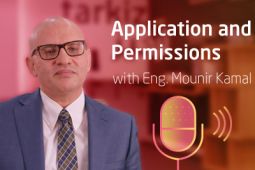How can I guide my children to make choices that ensure their privacy online?
Family Agreement on Internet Use

How can I set online resolutions with my family?
A family agreement is a social and heart contract to organize and shape the family member’s relationships, interactions, and boundaries among each other, to practice healthy communication and self-expression, to create a friendly, safe space for all, and to allow family members the opportunity to monitor, regulate and modify their behavior.
The first step is the warm-up phase: How can we prepare such an agreement with my family?
- As a parent, first educate yourself, increase your knowledge and information and learn about social media platforms and about the different forms of cyberbullying. Even if you’re not highly engaged in the digital world, you need to be able to grasp it and that’s the bare minimum.
- Second, prepare the location and a good timing to start such a discussion. It is highly important to pay attention to all factors; all members of the family should be involved, and they should be serious about it and attentive to the discussion.
- Set your general goals concerning the family agreement, have clear messages on the purpose, how to do the facilitation and why you are doing it.
The second step would be facilitating the family agreement:
Remember! You are leading this facilitation, so it is very important the way you treat each other during these discussions.
- You can always start with the questions below:
- How would you like to be treated by others while participating in this discussion?
- What are the issues that could hinder the process for you?
- What things would foster learning and make you feel safe and comfortable within the group?
- Bring a paper and start writing everything. Everyone can write what/however they want; eventually, everyone is involved.
- You need to create a safe space during the discussion because it is vital for everyone to feel secure and that they will not be judged for anything they say.
- As a mom/dad who is in charge, you need to allow everyone a space to express their feelings and views and you need be there to give support.
- Continue the discussion and ask the following:
- What is our intention for today?
- How should I behave?
- How should I avoid negative behaviors?
- Who will be affected by my decision?
- How will I remind myself of what I want before I react?
- During this facilitation process, many topics will come up that needs to be tackled, discussed, and agreed on.
Unpacking the issues and frame them properly:
- Ask for examples and illustrations to further explain a point.
- Dig deeper into general expressions. Unpack the big concepts and motivate children to break them down into clear, understandable, and applicable steps.
- Make suggestions.
- Don’t force (or forbid) anything. Even if you disagree with what is written at the moment, give change a chance during the discussion, if it does not contradict the family values.
- Make it fun and serious at the same time and allow interactive behavior such as drawing and painting, depending on the age of your children.
- Encourage participants to use ‘I’ statements where they suggest ideas for the family agreement.
On the group level, during the family agreement, learn some strategies that could help you to reinforce it:
- Understanding that things that come from the heart are not imposed on us; they are things we really believe in, things we have ownership of.
- Layering questions is like peeling away an onion. Each question takes you one layer deeper. Start with simple, easy-to-answer questions, then move to the more difficult ones. Remember that the young person who you are talking to is the one guiding the conversation so follow his or her lead.
- The contract should be a flexible document, one that can be changed. It will help us break down barriers and increase our trust in one another. It will set the ground rules of how we want to communicate and deal with each other.
- Explaining that this is a living document that will be revisited down the road. It is an agreement between us and should be respected and adhered to accordingly.
- Taking the negative things the children say about themselves or others and placing them in a more positive light. Some examples:
- If one of the children says, “I’ve never been good at social media” or “I post things that I shouldn’t post”, you could ask “What is that you’re good at?” or “what are the things that you should be posting?”
- If he/she says, “I feel hopeless about this”, you could ask “If you could take one small step towards fixing it, what would that be?”
- If he/she says, “I’m afraid to talk about this”, you could say “If you were going to speak to your parents about this, how would you start?”
On the individual level, adopt certain behavior that will make you a good role model:
- As they share, explain to them that you encourage them to use “I” statements, like “I think”, “I feel”, and “I believe” etc., because people that are stressed often find it difficult to think critically and articulate their own thoughts.
- Practice compassion: Understanding a person’s distress and his/her desire to alleviate it is an essential part of this agreement, for example:
- “My friend mocked me on the group Messenger, and I started crying.” You might say “I felt upset because your friend mocked you”.
- Always ask for feedback from the family members on how well you facilitated the process, what can be improved and what did they think of the process.
- Listening means keeping your eyes on the person in front of you, your body turned towards them and your thoughts focused on what they are saying. It means being entirely in the present moment, allowing them to speak without interruption or without trying to impose your idea.
Family agreements have a sustainable impact in the future, shaping the behavior of the child and improving cognitive and conflict-resolution abilities.
@2x.png)






















